Meal time is supposed to be relaxing, but that doesn’t mean we can behave any way we like. In fact, maintaining some decorum helps everyone enjoy their meal better, and in this article, we look at some things that you should avoid doing while eating with others.
Poor Use of Utensils

Knowing how to properly use utensils shows respect for the dining experience. Using utensils incorrectly really shows that you aren’t used to a fine dining experience—in addition to being dangerous. A quick Google search before your meal can show you how to properly use the utensils that will be at the table.
Not Offering to Share

When sharing a meal with someone you know intimately, ask them if they would like to have a bit of your food. Even if they say no, they’ll appreciate that you put in the effort to ask. When sharing dishes, make it a point to ask others if they’ve had enough if you’re having the last of something.
Elbows on the Table

Elbows on the table can be seen as too casual or disrespectful in formal settings. This is not a strict rule, but try to avoid it just in case. It doesn’t seem like such a big deal, but having elbows on the table where people are eating can seem untidy and may take up too much space along with the utensils.
Speaking With Your Mouth Full

People often find it rude when someone talks with their mouth full, as it can be both visually and audibly unpleasant. If you have something to say and you still have food in your mouth, it’s best to keep it to yourself until you’re done eating. Nothing is too important to wait two minutes.
Ignoring the Host
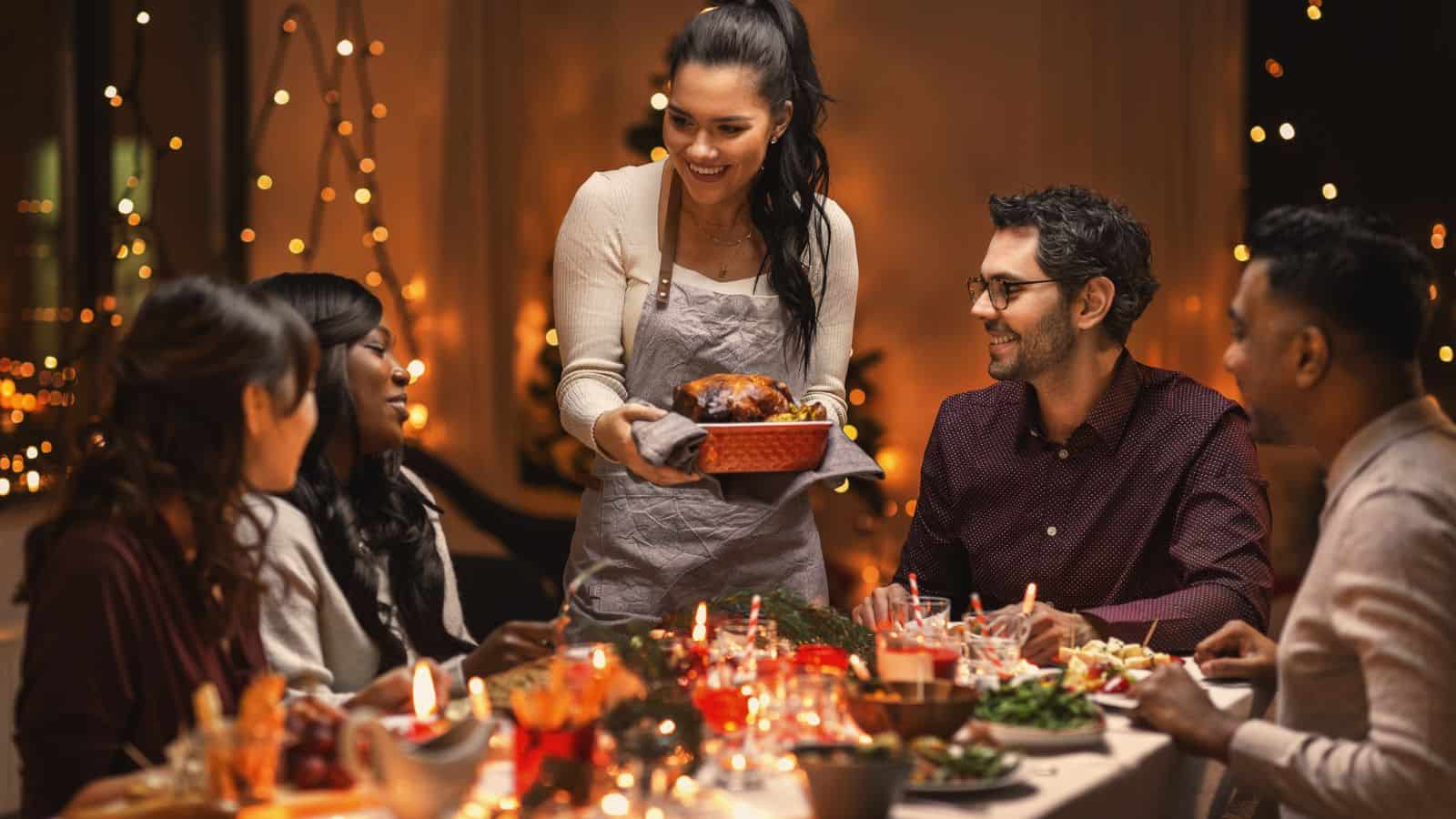
A good guest always acknowledges the host’s hard work and hospitality. You must say thank you to your host to show that you appreciate how much they put into having you. Don’t just say thank you; make an effort to show them that they managed to impress you and make your stay comfortable.
Using Your Phone at the Table

Using your phone at the table distracts from the meal and the company. Habits like texting while eating, answering calls, and browsing social media at mealtime are all big no-nos. To take it a step further, Southern Living recommends you leave your phone in your bag or another place when sitting at the table.
Neglecting Personal Hygiene
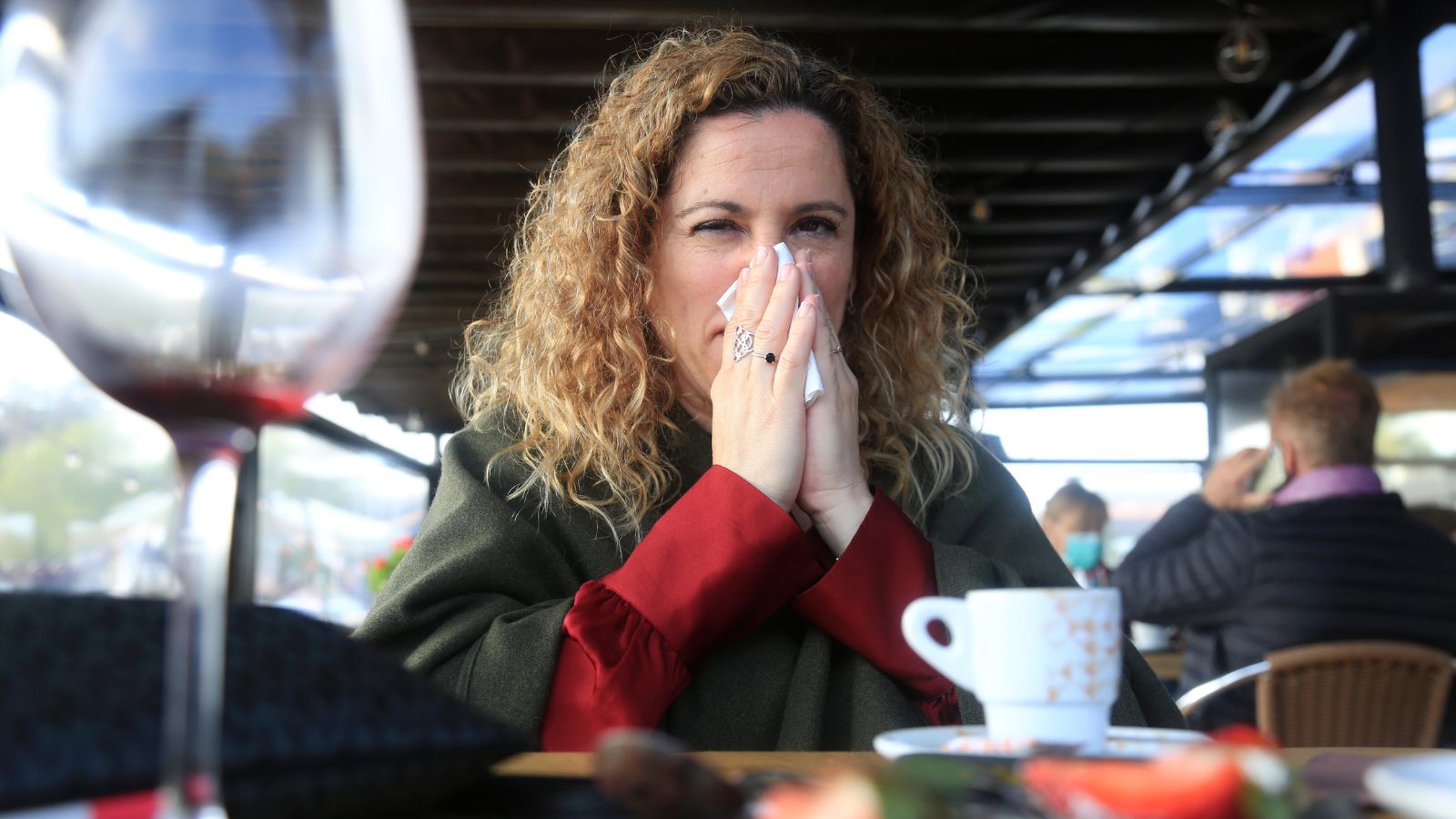
Good personal hygiene is crucial to ensure a pleasant dining experience for everyone. Avoid coughing or sneezing at the table, and make sure to use your napkin correctly. Try to also keep your nails and face clean.
Starting Before Others
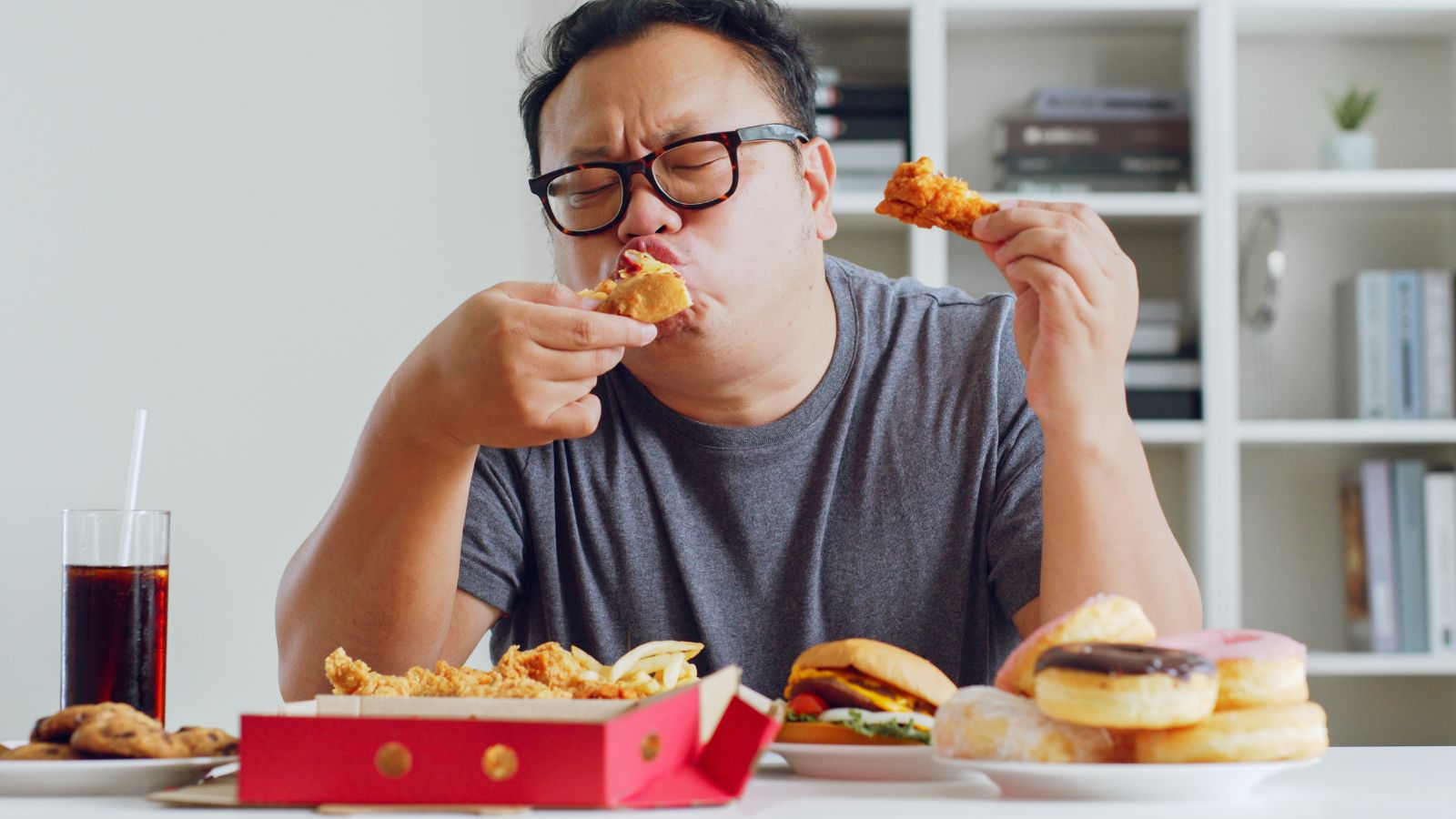
Starting to eat before everyone else is not polite. You should wait until all have their food, a toast is done, or any group rituals are started. This shows respect and allows everyone to enjoy the meal together. It can be awkward if you’re eating and others are just watching. So, always check that everyone is ready to begin before you start eating.
Complaining About the Food

Even if you don’t like something, remember that someone worked hard to prepare it. Don’t make negative comments, compare it with other food, or refuse to eat it outright. Try to find something positive to say or eat what you can. It shows respect for the effort put into making the meal, even if it’s not your favorite.
Overloading the Plate

Don’t take more food than you can eat. When you overload your plate and then waste food, it’s not fair to others. Some might not get enough to eat because of this. Always take a small amount first. You can always get more later if you’re still hungry.
Inappropriate Table Talk

Keep the conversation at the table nice and friendly. Avoid discussing things that might upset others, using bad words, or talking too much about yourself. The School of Modern Etiquette says to avoid relationship status, health and appearance, plans for having children, politics, and religious affiliations.
Not Using a Napkin

Using a napkin correctly is a basic part of good table manners. Forbes has a few pointers, saying, “Don’t blot lipstick on a cloth napkin or use it as a handkerchief, don’t place your cloth or paper napkin on your plate after eating, and don’t place your napkin back on the table while others are still eating.”
Reaching Over Others

Reaching across the table to get something isn’t good manners. It can bother people and mess up the table setting. Instead, ask someone to pass the thing you need. This is more polite, keeps the table tidy, and makes everyone happy.
Poor Handling of Dislikes

When you don’t like a dish, be polite about it. Don’t spit food out, make faces, or loudly say you don’t like it. You can quietly leave the food on your plate or try a little bit to be polite. If you don’t like something, Lifehacker recommends saying things like, “No, thank you—I want to save room for [other dish],” “I can’t wait to dig into [other dish],” or “[Ingredient] bothers my stomach, so I’m going to pass on this one.”
Leaving the Table Improperly
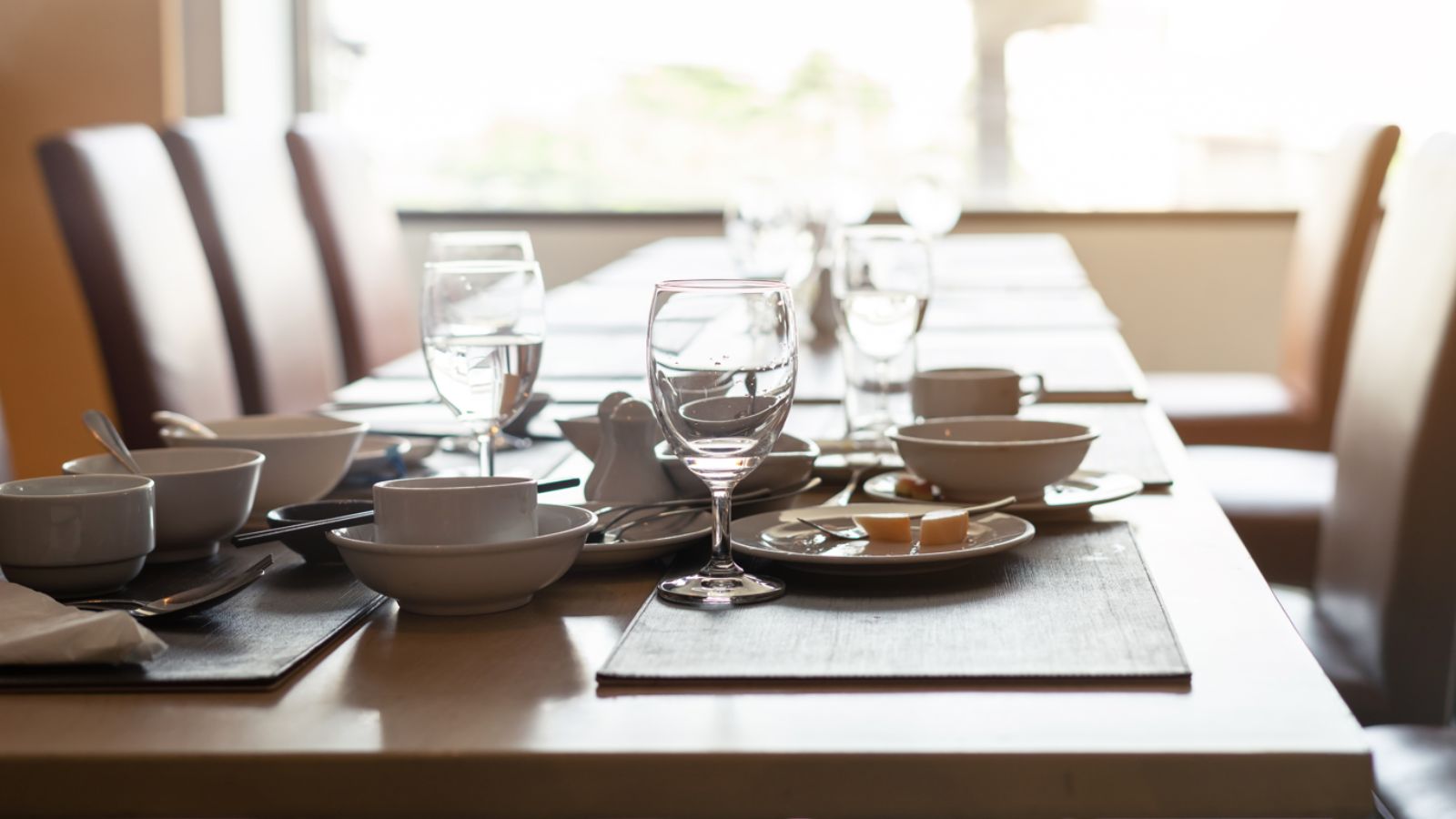
Leaving the table with grace and gratitude rounds off the meal nicely. Politely say, “Excuse me,” and lightly lift your chair to prevent it from loudly rubbing against the floor. If you need to, let the table know why you’re leaving. For example, you can say, “Excuse me while I take this call.”
Not Contributing to the Meal
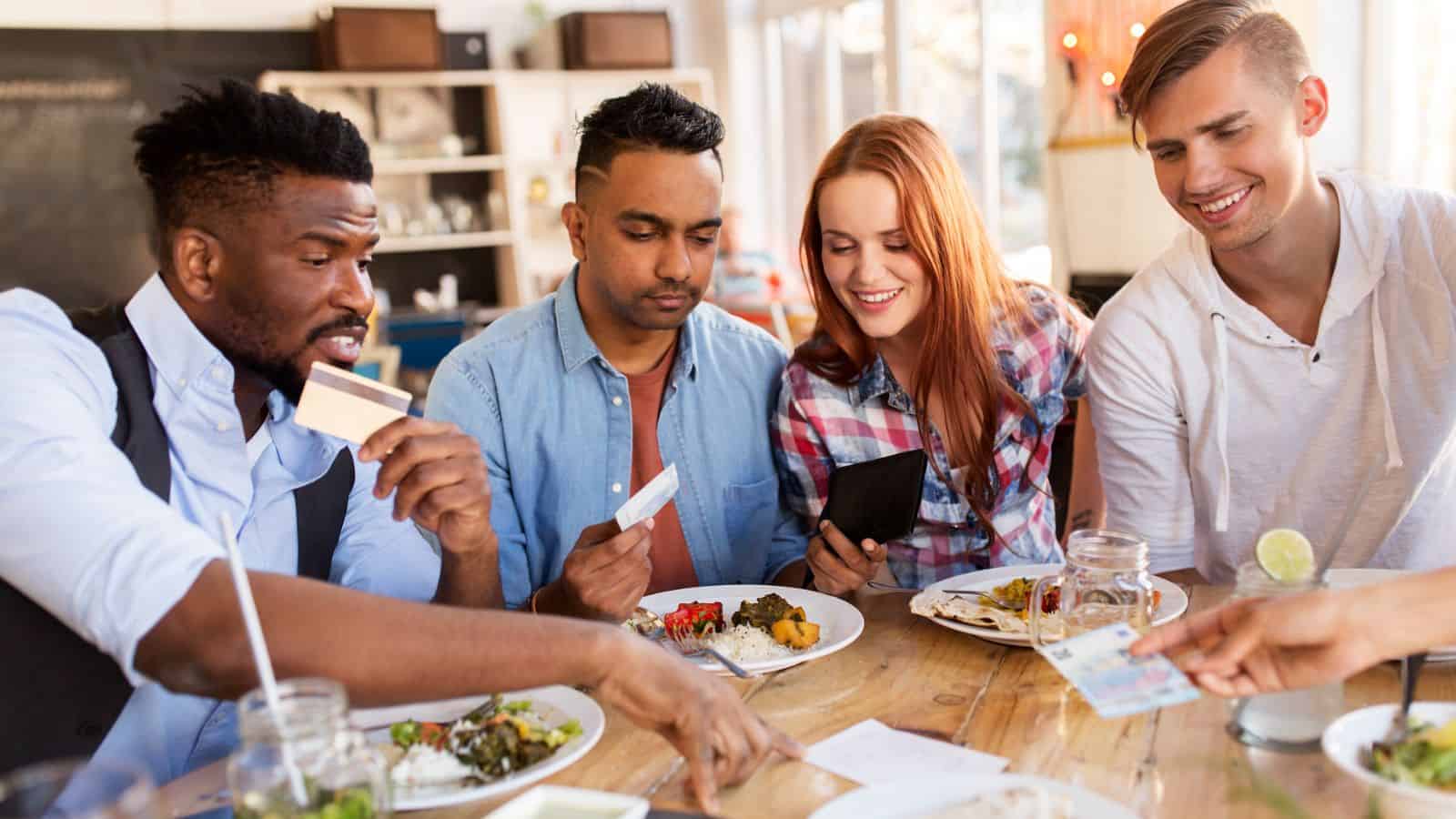
When it’s time to clean up after the meal, offer to help the host, as they’re likely tired from putting everything together. Slowly stand up and ask them what you can do to help with the process. Avoid getting in the way just to make yourself feel useful. Instead, do exactly as they say to lighten the load.
Forgetting to Compliment the Chef
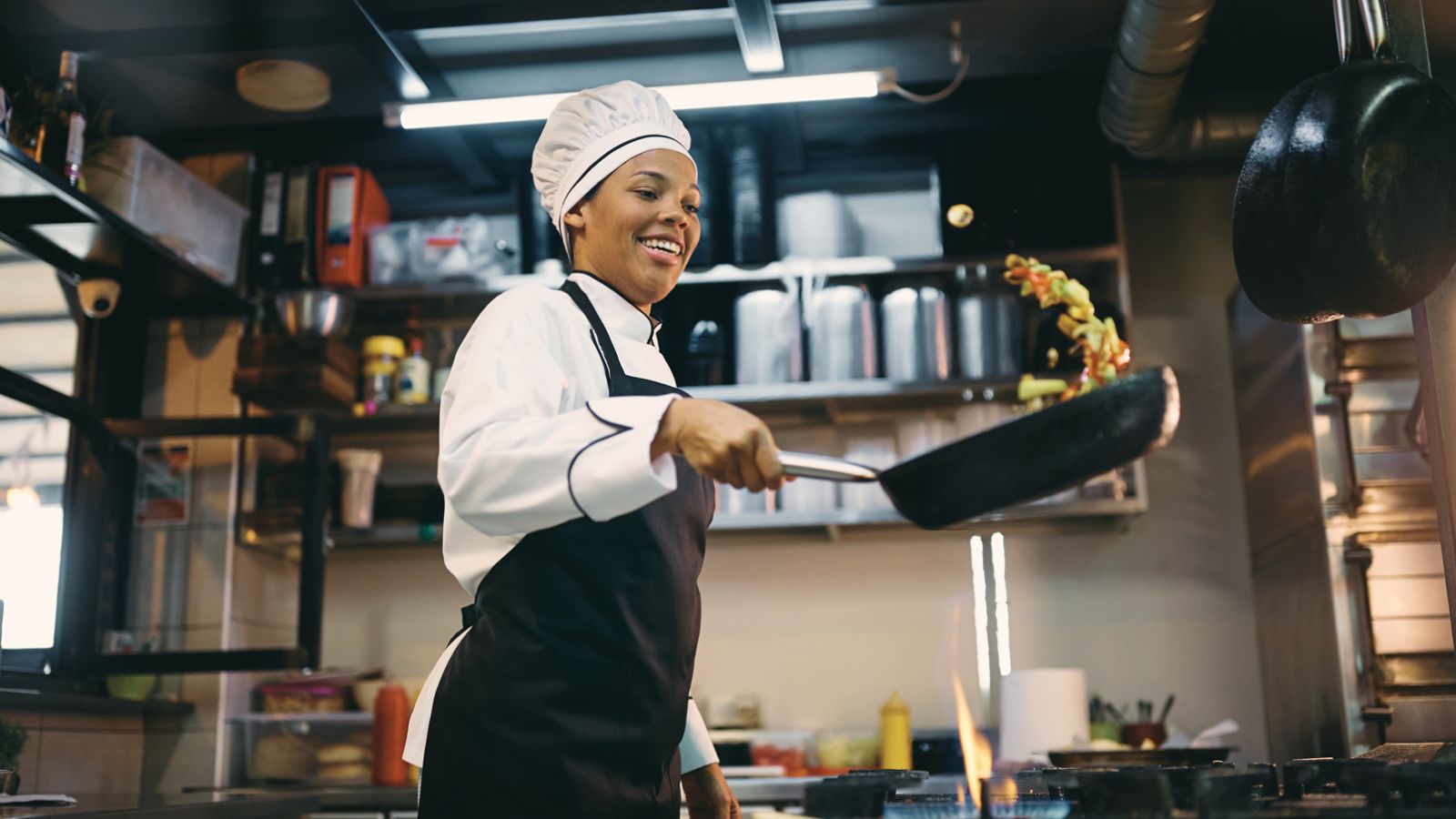
A compliment to the chef can be a simple but meaningful gesture of appreciation. If you stay quiet about your thoughts on the food, some chefs might assume that you don’t like it. If you enjoyed the food, give a detailed compliment to the chef and let them know what really stood out to you.

